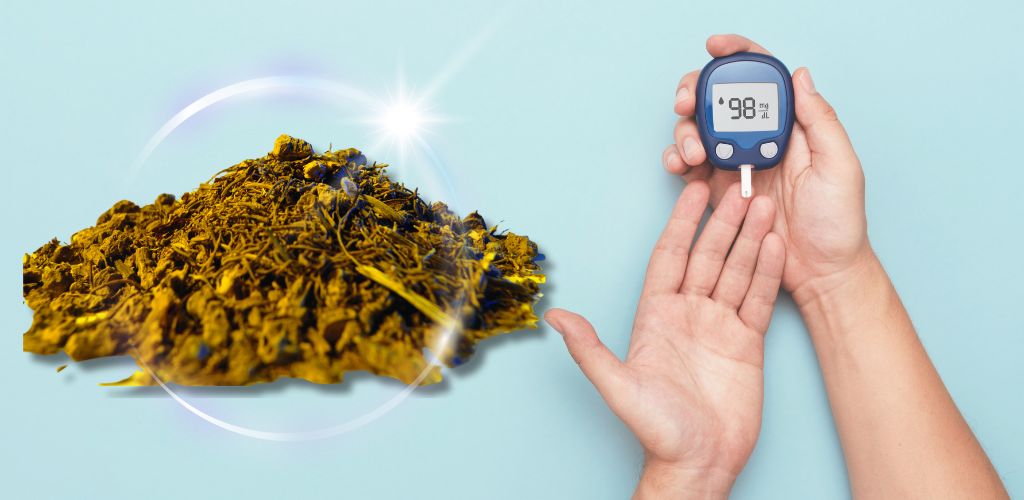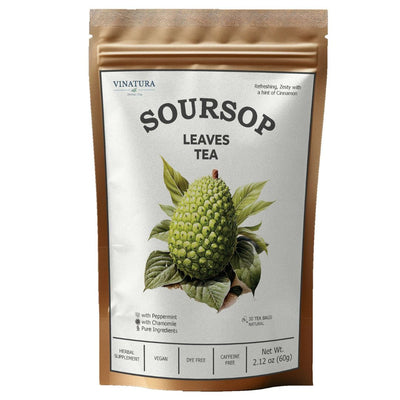
Is Goldenseal Good for Diabetes?
Have you ever heard of Goldenseal, a popular herbal remedy that has been studied for its potential to help manage various conditions, including diabetes?
The unique root of Goldenseal shows promise in helping individuals with diabetes control their blood sugar levels naturally.
In this article, let's dive into the effects of Goldenseal on diabetes, screening its benefits, and clarifying its therapy approach.
Before exploring further, please read the disclaimer located at the end of this webpage.
Key Takeaways
- The primary component of Goldenseal contains Berberine, which may reduce insulin resistance and promote insulin secretion.
- Although the effects of goldenseal on diabetes have some positive aspects, more research is needed to support this view. Therefore, the use of Goldenseal for diabetes should be approached with caution under the guidance of a specialist doctor.
Does Goldenseal Lower Blood Sugar?
The primary component of Goldenseal contains Berberine, which may reduce insulin resistance and promote insulin secretion. These factors may help lower blood sugar levels and benefit individuals with diabetes.
A meta-analysis of Berberine across 28 studies (2313 subjects) revealed significant reductions in fasting blood glucose, postprandial glucose, and A1C levels, especially when combined with oral diabetes medications, compared to alone.
However, its efficacy diminishes over time and in older individuals [1].
Goldenseal Potential Benefits for Diabetes

May Help for Blood sugar Control
Berberine in Goldenseal may promote insulin secretion and protect pancreatic cells through its antioxidant activity in type 1 diabetes patients.
Studies suggest that Berberine stimulates glucose uptake by regulating glucose transporter expression in fat and muscle cells [2].
To investigate the effectiveness of BBR, in a study of 36 adults with type 2 diabetes, random assignment was made to BBR or metformin (500 mg three times a day) for the first 3 months of the study.
Research has shown that the hypoglycemic effect of BBR is similar to metformin, without any side effects observed in patients who use Berberine [2].
May Reduce Metformin In the Body
For people taking metformin, a common diabetes medication, there may be concerning side effects such as gastrointestinal upset. Meanwhile, Goldenseal is used to self-treat respiratory infections and digestive disorders.
According to a study in rats, the mechanism for reduced systemic metformin concentrations is due to Goldenseal's inhibition of intestinal absorption transporters involved in metformin absorption [3].
Moreover, combination therapies with Berberine and Western drugs have provided better glycemic control than Western drugs alone. In many trials, Berberine has been used with metformin. It has shown to be more effective in lowering blood sugar and improving diabetes symptoms than metformin alone in type 2 diabetes patients [2 ].
May Reduce Sugar Absorption from the Gut
BBR has significant antibacterial activity against bacterial, viral, and fungal infections and parasites and worms. Therefore, BBR may exert therapeutic effects on diabetes by regulating intestinal microbiota [2].
The effect of Berberine in reducing intestinal Glucose absorption is because BBR can reduce intestinal glucose absorption to reduce blood sugar levels potentially by inhibiting the activity of α -glucosidase. This intestinal enzyme has digestive effects [2].
Goldenseal may contribute to reduced intestinal sugar absorption, reducing post-meal blood sugar spikes. These effects suggest that Goldenseal may be beneficial when included in a diet plan for diabetes control.
May Lower Insulin Resistance
Several studies have demonstrated that Berberine can stimulate glucose uptake into cells by upregulating type 1 glucose transporter expression, which ultimately helps to improve insulin resistance.
As mentioned above, Berberine can be combined with other Western medicines.
According to research demonstrating the effectiveness and safety of Berberine and glipizide combined in patients with type 2 diabetes, 152 cases of diabetic patients in the BBR group (51 cases), glipizide group (50 cases) combination) and BBR combined with glipizide group (51 cases) ministered for 12 weeks, showing that using Berberine or Berberine combined with glipizide in diabetic patients can not only potentially benefit insulin resistance and restore islet function but also effectively reduce blood lipid levels and no obvious side effects were observed in this study [2].
Besides, Goldenseal also offers other potential benefits for human health. Explore these effects in this video:
Are There Any Risks and Concerns When Using Goldenseal for Diabetes?
According to studies using Goldenseal in diabetic patients, although mild gastrointestinal reactions, including diarrhea and constipation, there were no significant side effects [2].
However, Goldenseal may have many potential side effects, including nausea, anxiety, indigestion, uterine cramps, and jaundice in newborns. If taken in large doses, Goldenseal can cause convulsions and respiratory failure and can affect cardiac contractions [1]. Women who are pregnant or breastfeeding and infants should not use Goldenseal without a doctor's supervision.
Safe Way to Use Goldenseal for Diabetes

Diabetic patients using Goldenseal should periodically monitor their blood sugar levels. Regular monitoring helps diabetes evaluate the effectiveness of the herbs and detect any changes that require adjusting the process.
Furthermore, Goldenseal should not be used for long periods without supervision.
Long-term use may lead to unwanted side effects and may not be suitable for everyone. The duration of Goldenseal use for diabetic patients is 3 months, with a dose of Goldenseal containing 1000 - 1500 mg of Berberine per day, based on studies on type 2 diabetic patients [2].
However, Goldenseal may benefit diabetes management but cannot replace other elements of diabetes care, such as maintaining a healthy diet and exercising regularly. Diabetic patients should combine Goldenseal with a healthy lifestyle and diet to improve effectiveness and protect their health.
Frequently Asked Questions
Is It Safe to Take Goldenseal With My Diabetes Medications?
Studies have shown that Goldenseal may potentially lower blood sugar levels. This increases the hypoglycemic effects of antidiabetic medications, which may lead to hypoglycemia (low blood sugar) [2]. Although studies combining Goldenseal with other diabetes medications have not shown significant adverse effects, the use of Goldenseal with diabetes must still adhere to suitable doses and with expert consultation.
Are There Any Side Effects Associated With Goldenseal?
Possible side effects of Goldenseal include digestive irritation and discomfort, anxiety, uterine cramps, and jaundice in the newborn. If used in large quantities, Goldenseal can cause convulsions and respiratory failure and may affect heart contractions. Berberine can damage DNA in some cells [4].
What Are Some Safe And Effective Ways to Manage Diabetes?
To manage diabetes safely and effectively, individuals should adhere to a balanced diet, exercise regularly, regularly monitor their blood sugar levels, and comply with their prescribed medications. Natural supplements can be supported but must be used cautiously and under medical supervision.
Conclusion
Goldenseal is an herb of interest for diabetes due to its potential benefits in blood sugar control, influence on metformin levels, and positive effects on sugar absorption and insulin resistance. Goldenseal may offer potential advantages for those with diabetes. Yet, having a consultant with supervision and guidance is crucial to guarantee its safe and efficient utilization.
References
- [1] "Goldenseal - Special Subjects." MSD Manual Professional Edition, www.msdmanuals.com/professional/special-subjects/dietary-supplements/goldenseal. Accessed 22 Mar. 2024.
- [2] Pang, Bing, et al. "Application of Berberine on Treating Type 2 Diabetes Mellitus." International Journal of Endocrinology, vol. 2015, 2015, pp. 1–12, https://doi.org/10.1155/2015/905749.
- [3] Oyanna, Victoria O., et al. "Goldenseal-Mediated Inhibition of Intestinal Uptake Transporters Decreases Metformin Systemic Exposure in Mice." Drug Metabolism and Disposition: The Biological Fate of Chemicals, vol. 51, no. 11, 1 Nov. 2023, pp. 1483–1489, pubmed.ncbi.nlm.nih.gov/37562957/
- [4] ---. Encyclopedia of Dietary Supplements (Online). Google Books, CRC Press, 29 Dec. 2004, books.google.com.vn/books?hl=en&lr=&id=r33SBQAAQBAJ&oi=fnd&pg=PA297&dq=Hydrastis+canadensis+digestive&ots=1y_9cq9ZmZ&sig=ovWYs_8DGjq2zzUfNvbc57J7N0k&redir_esc=y. Accessed 22 Mar. 2024.
Author

Product Disclaimer
Including an ingredient or study does not evaluate, endorse, or recommend any Vinatura product or any third-party product. Some ingredients discussed may not be used in any Vinatura product.
The content of the articles has not been evaluated by the Food and Drug Administration (FDA) and is not intended to promote or endorse any specific product. Any products sold on this website are not intended to diagnose, treat, cure, or prevent any disease.
Opinions and Endorsements
Any claims, statements, or opinions expressed in the articles are those of the author(s) and do not necessarily reflect the views or opinions of the manufacturers of the dietary supplement products. The products sold on this website are separate from the content of the articles and are not directly endorsed or associated with the information presented here.
Liability Disclaimer
The author(s) of the articles, website, and manufacturers of the dietary supplement products do not assume any liability for any potential consequences arising from the use of the information provided in the articles. Ingredient effects, dosages, and safety vary by individual, formulation, and context; some ingredients interact with medications or may be unsuitable during pregnancy or lactation. It is recommended that individuals consult with a qualified healthcare professional before making any dietary or lifestyle changes, including the use of dietary supplements.
Product Usage
Please refer to the product labels and packaging for specific usage instructions and guidelines for the dietary supplement products sold on this website.
Customer Support
For any concerns or questions regarding the dietary supplement products, please contact our customer support team, who will be more than happy to assist you.





Leave a Comment
Be the first to comment.
What do you think?